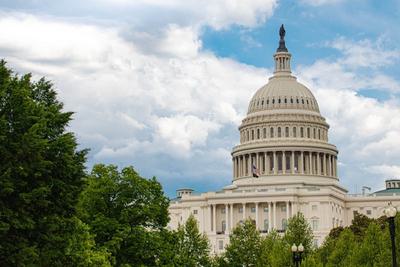A new study finds evidence that Congress intended for the 1970 Clean Air Act to cover carbon dioxide emissions. The finding strengthens the legal case for regulating heat-trapping gases.
Under former president Barack Obama, the Environmental Protection Agency put forward a regulation on carbon dioxide emissions from power plants. But in 2022 the Supreme Court scrapped the standards, asserting that Congress had not empowered the EPA to regulate greenhouse gases.
A new review of historical records challenges the conclusion of the Supreme Court. Undertaken by researchers at Harvard and Duke, the research finds that the authors of the 1970 Clean Air Act understood that burning fossil fuels would warm the planet, and they considered carbon dioxide to be a pollutant. While lawmakers did not view carbon dioxide as an imminent threat, they did believe the greenhouse gas would eventually need to be regulated.
At the time the law was crafted, there was already a growing awareness of climate change. Reports for presidents Lyndon Johnson and Richard Nixon warned of planetary warming, and such information began to penetrate the public consciousness as Americans learned about the greenhouse effect by reading popular magazines, watching television, or in school. In a 1969 appearance on the Merv Griffin Show, beat poet Allen Ginsberg decried how “the current rate of air pollution brought about by the proliferation of automobiles” could cause “the rapid build-up of heat on the Earth.”
The new study explains how the staff of Senator Edmund Muskie, principal architect of the Clean Air Act, kept track of the public conversation on climate change. Muskie, a Democrat from Maine, warned at the time that unchecked pollution would “threaten irreversible atmospheric and climatic changes.”
The study, soon to be published in Ecology Law Quarterly, concludes that Congress “understood far more about the potential threat of anthropogenic climate change than either the [Supreme] Court or most commentators have recognized.”
ALSO ON YALE E360
How an Early Oil Industry Study Became Key in Climate Lawsuits



